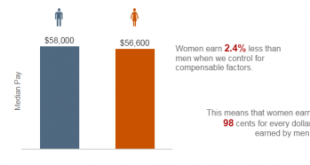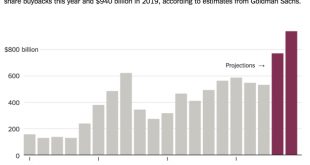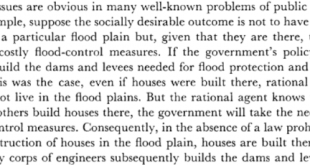from Lars Syll The gender pay gap is a fact that, sad to say, to a non-negligible extent is the result of discrimination. And even though many women are not deliberately discriminated against, but rather self-select into lower-wage jobs, this in no way magically explains away the discrimination gap. As decades of socialization research has shown, women may be ‘structural’ victims of impersonal social mechanisms that in different ways aggrieve them. Wage discrimination is unacceptable....
Read More »The 2008 Economic Crisis Ten Years On
a WEA online conference15th October to 30th November, 2018 Discussion Forum SessionsVisit the Discussion Forum I. The Financialisation of the Economy Carmelo Ferlito, “The Malaysian Property Boom and Bust Cycle: History Repeating?” Jake Jennings, “The Crisis and the Asset Driven Household” Pushpangadan Mangari, “Impact of Financialization: View from India” Teodoro Dario Togati, “Financialization and the ‘New Normal’. At the Root of the Aggregate Demand Problem Undermining New...
Read More »Goosing the golden goose (2 graphs)
from David Ruccio No, the stock market is not predictable. And no one knows the exact causes of last week’s carnage on Wall Street—with the Dow down 4.2 percent, the S&P 4.1 percent and the Nasdaq 3.7 percent, representing their worst weekly performances since March. But the precipitous fall in all major indices, which many analysts blamed at least in part on the earnings blackout period, did serve to highlight one of the factors that has been driving the bull market: corporations...
Read More »new issue of WEA Commentaries
WEA Commentaries Volume 8, Issue No. 4 Download the issue as a PDFIn this issue Studies on Financialization in Latin America, Esteban Pérez Socialism, Economics and the Left, David Ruccio Economics for an Information Age, Patrick Spread Complexity in Economics, Maria Alejandra Madi On global capitalism and the survival of democracy, Maria Alejandra Madi Please support the WEA by paying a membership fee or making a small donation....
Read More »Brazil
Mark Weisbrot – Presidential election is about a fight for democracy in Brazil Thomas Palley – Brazil is falling under an evil political spell
Read More »The neoliberal policies of resilience
from Maria Alejandra Madi Economic conditions are constantly changing. Today, our generation is confronted with the outcomes of contemporary globalization that is a broader, complex, and multifaceted process characterized by new markets, new actors and new rules. Indeed, globalization has produced many changes in our economy, society, culture, and politics. As a result, deep pressures to conform to new standards of behavior, such as efficiency and competitive performance, have forced...
Read More »Does using models really make economics a science?
from Lars Syll The model has more and more become the message in modern mainstream economics. Formal models are said to help achieve ‘clarity’ and ‘consistency.’ Dani Rodrik — just to take one prominent example — even says, in his Economics Rules, that “models make economics a science.” Economics is more than any other social science model-oriented. There are many reasons for this — the history of the discipline, having ideals coming from the natural sciences (especially physics), the...
Read More »Edward Prescott, Finn Kydland and the flooding of Fukushima
How did this ever pass the peer-review procedure… In an article in the Journal of Political Economy Edward Prescott and Finn Kydland argue in favor of (undemocratic) rules instead of (democratic) economic policies. One of the methods they use to push their idea is the using examples. One particular famous one is the one about floodplains. But the example is wrong. Government policies are not as benevolent, rational and effective as Prescott and Kydland think they are. And people are not...
Read More »The necessity and difficulty of shifting our economic paradigms
from Asad Zaman and the current issue of the RWER In the wake of the Global Financial Crisis, the failure of economic theories, and of economists, to provide any warnings, analysis, or remedies, became glaringly obvious to all. The Queen of England went to the London School of Economics to ask “Why did no one see it coming?”. The US Congress constituted a committee to investigate why “economics, a field that aspires to be a science … (but) … generally accepted economic models inclined the...
Read More »Paul Romer’s critique of ‘post-real’ economics
from Lars Syll In practice, what math does is let macro-economists locate the FWUTVs [facts with unknown truth values] farther away from the discussion of identification … Relying on a micro-foundation lets an author say, “Assume A, assume B, … blah blah blah … And so we have proven that P is true. Then the model is identified.” … Distributional assumptions about error terms are a good place to bury things because hardly anyone pays attention to them. Moreover, if a critic does see that...
Read More » Real-World Economics Review
Real-World Economics Review





